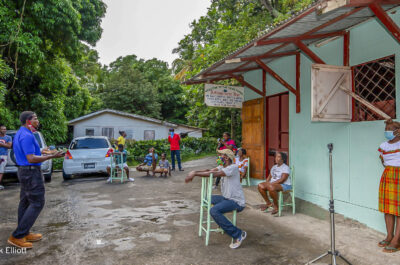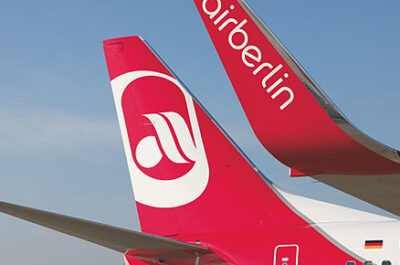airberlin’s “Eco-Efficient Flying” programme makes it the number one airline in Europe in the area of eco-efficiency.
On 17th September airberlin made public the diverse measures it is taking in the area of sustainability. Germany’s second largest airline is aware of its responsibility, both for the environment and towards humankind. In ecological terms airberlin is taking a pioneering role. At the heart of this is airberlin’s “Eco-Efficient Flying” programme, for which the airline was awarded the OkoGlobe for sustainable mobility in 2011. With its fuel consumption of only 3.5 litres per 100 passenger kilometres flown airberlin now stands at the forefront of the European airlines.
“Responsibility is not just a theoretical concept at airberlin; we put it into practice on a daily basis. We basically have three main objectives in terms of sustainability: we want to be experts in consumer protection and customer service, pioneers in climate and environmental protection and we want to promote and strengthen social cohesion in the airberlin group and in our society. In the area of the environment we already set up programmes years ago to conserve resources and fly in an eco-efficient manner. We are continually improving these measures. airberlin is and will remain a pioneer of climate and environmental protection,” said airberlin CEO Hartmut Mehdorn at Berlin-Tegel Airport.
One of the newest fleets in Europe
airberlin constantly invests in the latest technology and in renewing its fleet. With an average age of just five years, airberlin operates one of the newest, quietest and most efficient fleets in Europe. The IATA average for airlines worldwide is just under 14 years, in Europe it is around 12 years. The aircraft are equipped with the latest technology and are therefore safer and more efficient. Back in 2001 airberlin was the first airline in Europe to put Winglets on the tips of its aircraft wings to reduce the creation of vortices and therefore lower fuel consumption.
Saving fuel through a wide range of measures
The fuel efficiency programme is made up of 44 individual measures. Saving fuel does not just begin with starting the engines. The programme consists of many areas which need to be considered prior to this. Flight planning, reduction of weight and modernisation of the aircraft have just as much influence on fuel consumption as actual flight operation. In summer 2012, for example, a programme called “Fuel Efficiency Training”, which had been specially developed for airberlin pilots, was started; on this training, pilots learn how they can conserve fuel and therefore reduce emissions by implementing certain flying techniques and other measures. It is not a question of filling up less fuel, however, but of using less of the fuel which is available in the tank. airberlin also demonstrably reduces fuel consumption and emissions through the use of lighter seats and trolleys and lightweight containers, as well as through the policy of the “Less Paper Cockpit”. airberlin is also the first German airline to implement satellite-based precision landings using the RNP procedure (Required Navigation Performance – Authorization Required) in Innsbruck and Salzburg. This means that pilots can fly curved approaches when landing and are not limited to a linear flight path. This approach procedure uses air space more efficiently and thereby conserves fuel.
Target of three litres
Through the comprehensive fuel efficiency programme which has been developed by experts at airberlin, the airline is continually improving all the processes involved in flying and systematically creating new capabilities. In this way airberlin constantly manages to reduce its fuel consumption. As a result, fuel costs fall and the company’s environmental footprint improves.
“We have already achieved a great deal, but we would like to improve even further. Our target is clear: over the next five years we want to reduce the fuel consumption of our fleet to an average of three litres per 100 passenger kilometres flown,” announced Hartmut Mehdorn.
Vicky is the co-founder of TravelDailyNews Media Network where she is the Editor-in Chief. She is also responsible for the daily operation and the financial policy. She holds a Bachelor's degree in Tourism Business Administration from the Technical University of Athens and a Master in Business Administration (MBA) from the University of Wales.
She has many years of both academic and industrial experience within the travel industry. She has written/edited numerous articles in various tourism magazines.































































































































































































